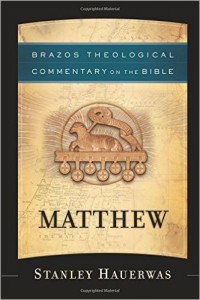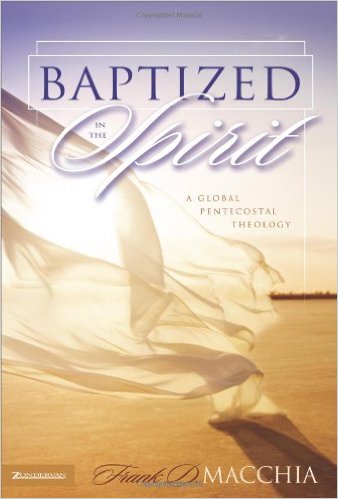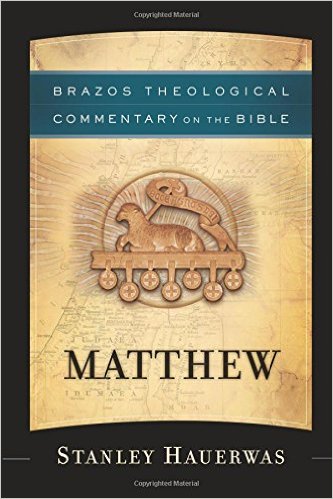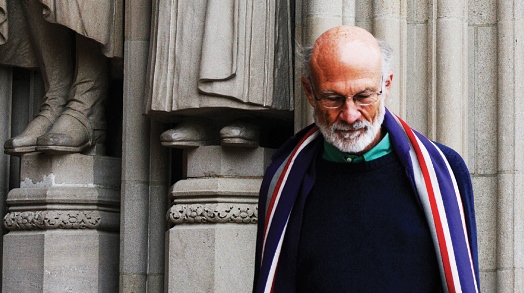 Selection: The Church Dogmatics II/2:94-103, Jesus Christ, Electing and Elected.
Selection: The Church Dogmatics II/2:94-103, Jesus Christ, Electing and Elected.
In his prolegomena to the doctrine of election Barth argued for three things:
- That the doctrine of election is oriented toward grace; it is the “sum of the gospel.”
- The foundation of election is found in Jesus Christ who is the subject and not merely the instrument or mirror of election.
- The doctrine is located within the doctrine of God proper, for the election identifies God as the gracious God, gracious in himself and in all his works ad extra.
Now, in this new section, Barth turns to the substance of the doctrine. For Barth, Jesus Christ is the divine election of grace, the focus of election, and as such, also the subject and content of election. Jesus Christ is the beginning of all God’s ways ad extra, the ground and telos of all God’s creating, reconciling and redeeming activity.
He is the election of God before which and without which and beside which God cannot make any other choices. Before Him and without Him and beside Him God does not, then, elect or will anything (94).
That is, Jesus Christ is the name that God—as Father, Son and Holy Spirit—has from all eternity decided to bear. The election is the eternal self-determination of the one God; there is no God nor work of God nor decree of God other than that of this God who bears this name. In an extended statement crucial for understanding Barth’s doctrine he argues that,
In the beginning, before time and space as we know them, before creation, before there was any reality distinct from God which could be the object of the love of God or the setting for His acts of freedom, God anticipated and determined within Himself (in the power of His love and freedom, of His knowing and willing) that the goal and meaning of all His dealings with the as yet non-existent universe should be the fact that in His Son He would be gracious towards man, uniting Himself with him. In the beginning it was the choice of the Father Himself to establish this covenant with man by giving up His Son for him, that He Himself might become man in the fulfilment of His grace. In the beginning it was the choice of the Son to be obedient to grace, and therefore to offer up Himself and to become man in order that this covenant might be made a reality. In the beginning it was the resolve of the Holy Spirit that the unity of God, of the Father and Son should not be disturbed or rent by this covenant with man, but that it should be made the more glorious, the deity of God, the divinity of His love and freedom, being confirmed and demonstrated by this offering of the Father and this self-offering of the Son. This choice was in the beginning. As the subject and object of this choice, Jesus Christ was at the beginning. He was not at the beginning of God, for God has indeed no beginning. But He was at the beginning of all things, at the beginning of God’s dealings with the reality which is distinct from Himself. Jesus Christ was the choice or election of God in respect of this reality. He was the election of God’s grace as directed towards man. He was the election of God’s covenant with man (101-102).
Barth’s comments here must be understood in the light of his doctrine of the Trinity in which he distinguishes between the immanent and the economic Trinity, and his model of the Trinity as one divine subject in three modes of being (Church Dogmatics I/1). In this text, God’s triunity precedes his election. God exists and so elects as the eternal Father, Son and Holy Spirit; election is the work of the triune God. Thus the Father elects, the Son elects, the Holy Spirit elects, and yet this is not three electings, but the one divine electing of the triune God. There is in Barth’s theology, no social trinity in which the will of the Father differs from that of the Son and the Spirit after the analogy of three distinct human persons, where the will of the three is utterly distinct from that of the others, and may even be in competition or conflict with the others. There may be distinction in the manner in which this one divine will is expressed in the choice of the three persons, but no division or separation.
Barth, of course, goes further than this: Jesus Christ is in the beginning—not in the beginning of God “for God has indeed no beginning. But He was at the beginning of all things, at the beginning of God’s dealings with the reality which is distinct from Himself.” Thus, election concerns not simply “the Son,” but Jesus Christ, the incarnate, the Son of God who is also the Son of Man. But how is this so, given that Jesus Christ is the man born in time?
In the eternity of God—that is, in the eternal wisdom and counsel of God, before there was any reality other than the life and being of God as Father, Son and Holy Spirit, God, in the freedom of his love, determined that he would give himself to and unite himself with humanity in the person of Jesus Christ. Before anything else this is a divine self-determination, a reflexive action in which God determines God’s own eternal being to be God only in this way, as the One who is with humanity and gracious to humanity in the person of his Son. Jesus Christ, then, is the object and “result” of the divine electing.
But Barth will go one step more. Not only is Jesus Christ the object of the divine election, but because this is an act of divine self-determination, the Son who chooses this electing together with the Father and the Spirit is none other than the Son united with humanity in the person of Jesus Christ. Jesus Christ, then, is the subject of election, the one who elects, as well as the object of election, the one who is elected.
 This article from the British Guardian argues that it not only okay, but necessary that Christians be allowed to celebrate Christmas without fear of offending anyone: “The nervousness over Christmas, or even over expressing religious belief, is an absurd expression of a real void at the heart of soulless technocracy.” It further argues that there is a place for Christianity in society, in the manner of virtue formation. I do not agree that Christian virtues ultimately derive from Socrates and Aristotle, although there is no doubt that Christian understanding of the virtues has been greatly influenced by these philosophers over the centuries. What I liked about the article was its insistence that
This article from the British Guardian argues that it not only okay, but necessary that Christians be allowed to celebrate Christmas without fear of offending anyone: “The nervousness over Christmas, or even over expressing religious belief, is an absurd expression of a real void at the heart of soulless technocracy.” It further argues that there is a place for Christianity in society, in the manner of virtue formation. I do not agree that Christian virtues ultimately derive from Socrates and Aristotle, although there is no doubt that Christian understanding of the virtues has been greatly influenced by these philosophers over the centuries. What I liked about the article was its insistence that





